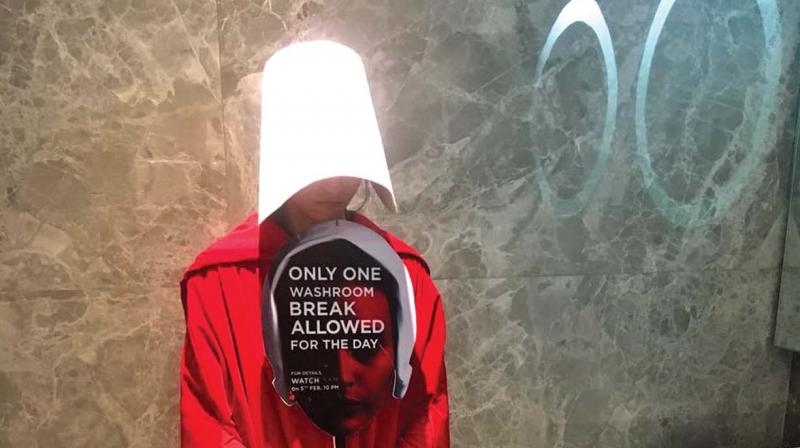Dystopian fiction from a woman's angle
AXN premieres The Handmaid's Tale' February 5 onwards, every Monday at 10 PM.

Margaret Atwood talks about her book ‘The Handmaid’s Tale’, written in the background of a dystopian future, the television show based on the same novel that won the Golden Globe and Emmy Awards for Best/Outstanding Television Series-Drama. She explains how she carefully knit a story by relating true happenings of the past to a future that’s very different from the present setting all in this interview. AXN premieres ‘The Handmaid’s Tale’ February 5 onwards, every Monday at 10 PM
Q. Can you talk a bit about the context in which you wrote this book?
I started writing The Handmaid’s Tale in 1984. I wrote it for several reasons. First, I had a background in dystopian fiction and I had always wanted to write a novel that took place in a society different from ours, but with a female character as the narrator. I also had studied 17th century Puritan America, a theocracy -- not a democracy -- that, I believe, underlies America as its foundation. Finally, I was of an age to have seen various totalitarianisms come and go, and I never believed “It can’t happen here.”
My rule for the book was I would not put anything into it that human beings had not done at some time in someplace already in history. Everything in the book has a precedent. For instance, the handmaids and women in general are not allowed to read. It was illegal for slaves in America to read, just for instance. You can go through all of the different pieces in the novel and ask me where in history it happened and I can tell you.
Q. Can you talk a bit about the direction the show takes versus the book?
A: The television series follows characters that aren’t dealt with in depth in the novel, and sometimes the series shows events that aren’t in the book at all. In the book, the character called Ofglen (played in the series by Alexis Bledel) just disappears, and we don’t know what happened to her. It’s a very chilling moment. Offred -- the central character - goes out for her usual walk with her partner, since they have to go about in twos like nuns of old. She’s expecting the usual person to be there and it’s a different person. She says, “What happened to Ofglen?” This new person says, “I am Ofglen.” End of conversation. Offred can’t find out anything else in the book, but in the series, we find out what happens to Ofglen.
Q. What do you think about the series?
The tension in the series is nail-biting: you feel on edge all the time because you have such an emotional connection to the characters, especially Offred. She is a person navigating a world in which she’s always under suspicion. In this world much is expected of Offred, and if she doesn’t produce, she’s out.
Q. Can you talk about the casting of the show?
A: The younger casting makes for a lot more sexual tension and jealousy between characters that works pretty brilliantly in the series. The production team decided to make the cast more diverse than the book. There are interracial relationships, for instance, whereas in the book, segregation is one of the regime’s aims. The team also cast the Handmaids in all different shapes, sizes, colours -- all different kinds of people. I think the diversity works very well and is more accurate about where we are as a society now. That’s how it would be. With fertility at such a premium, having a functioning set of ovaries overrides any other considerations there might be.
Q. What would you hope for people to get out of the series?
I hope that the audience will understand why it is so important to speak your mind while you can, and to vote -- also while you can.

